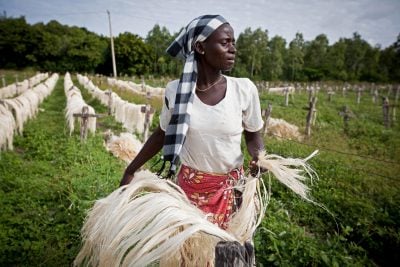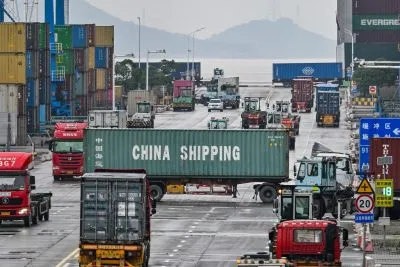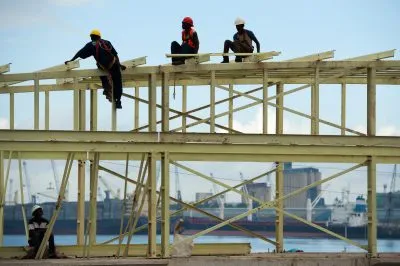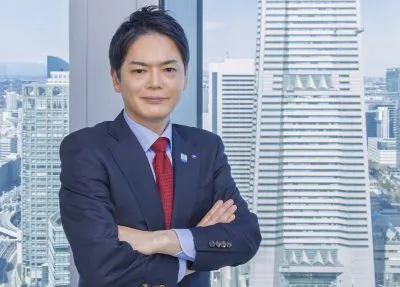One long held view is that the USA has no strategic interest in Africa and that, in the context of the division of labor and influence zones among powers, America implicitly recognises Europe’s tutelage. That opinion has never been more questionable than today, in the face of a new scramble for the continent’s riches by America’s rivals, especially China and Russia.
A mental, psychological, and intellectual revolution is reshaping Africa and its world view. Africans are questioning the relevance of the usual dichotomies such as liberalism vs conservatism, democracy vs autocracy, market economy vs state intervention, individual freedom vs state rights.
They tend to favour the recipe that works, not just hefty ideas or fashionable ideologies. Africans are equally disappointed by their own ineffective rulers and are frustrated by double standards in international relations.
For Africa, a reset of relations with the US would aim to acknowledge and respect the continent’s specificities and aspirations, recognise African nations as sovereign and worthy of direct engagement, and endorse Africa’s strategic objective of political and economic unity.
For the USA, a reset would reposition America in the new scramble for Africa. Against a backdrop of Europe’s declining influence and rising powers’ competition for Africa’s resources, business opportunities, minds, and hearts, a fresh start could help the US benefit from the largely untapped potential of human, strategic, economic, and diplomatic cooperation with Africa.
Change of mindset
To achieve this reset, there needs to be a change in US mindset, narrative, and policies towards Africa. In the US, Europe and elsewhere, the perception of Africa swings between cynicism and paternalism. For cynics, it would be easier to negotiate with a weak, divided Africa than a united and powerful one.
On the other hand, the paternalistic view would see Africans as inherently incapable of self-ruling. Both the cynic and paternalistic views have contributed to create the compassion industry of aid, assistance, and advice. Both fail to acknowledge the progress achieved and the emergence of a new, uninhibited, and self-reliant continent. That new Africa wants to speak for itself on the world stage, without translators of its interests and wants.
In addition, the USA has an obsession for quick fixes. This is inconsistent with Africa’s realities. African countries in their current configuration are roughly only sixty years old and are still suffering the lingering effects of past trauma. The complexity of Africa’s heritage and present means that the continent needs time to redefine itself, heal, and rebuild. In this context, democracy should be understood as a long experimental process, improving over time after trials and failures, rather than an overnight achievement.
Key policy shifts
Against that background, the USA needs to make several key policy shifts towards Africa. Chief among those shifts, the US needs a legible policy that goes beyond just countering the influence of China and Russia. A proactive approach would consider the internal dynamics of African countries and lay out the interests of both parties.
Another tentative policy shift in US-Africa relations would consist for the USA in focusing more on Africans than on Africa. Instead of considering Africa as a mere battlefield in the context of its competition with geopolitical rivals like China and Russia, the USA should partner with Africans as people with specific needs, plans, expectations, and rights.
Further, it can be argued United States African Command (AFRICOM) has taken diplomatic precedence since formation in 2007. Such an approach could be supplemented by people-to-people diplomacy involving civilian government agencies such as parliaments, the media, learning institutions, and sister cities.
Furthermore, the US must stop outsourcing Africa to Europe. Largely challenged by Africans themselves, the former European colonial powers can no longer fully play their agency role on behalf of the West and are having a tough time competing with China and Russia.
China may have built more roads in Africa in a matter of decades than Europe did in centuries. As a further illustration, the Wagner Group, a Russian paramilitary organisation, has been propping up the government of President Faustin-Archange Touadéra and accused of committing atrocities in Central African Republic, a former French stronghold, and has made inroads in Mali, an erstwhile significant French military playground in Africa. Cameroon, a key asset for France’s influence in Africa, unexpectedly signed a military cooperation agreement with Russia in April 2022.
US should heed African aspirations
Finally, the US should focus on promoting America instead of demoting its rivals. China’s weaknesses do not necessarily translate into US strengths. Africans observe that while an eminent American casually treated their countries as “sh*tholes,” the Chinese were busy fixing those countries’ potholes; the underlying message is that Americans should stop talking and cursing, and instead start acting.
It is unfortunate that the first USA-Africa Leaders Summit in 2014 has not been followed through, potentially signalling fading mutual interest. Such a summit should become a permanent and predictable feature of USA-Africa relations. By comparison, China, Russia, Japan, France, UK, and Turkey are holding regular summits with African countries.
By better heeding Africa’s aspirations to sovereignty and dignity, and demonstrating African nations are worthy of direct engagement, the US and Africa can serve their mutual interests, and America can begin to benefit from the resources, economic opportunities, and diplomatic support of the new, emerging Africa.
Dr Yaya Moussa is the founder and president of Africa Prime, a video on demand streaming service dedicated to celebrating Africa’s talent and successes. He is a former IMF resident representative in the Republic of Congo
Want to continue reading? Subscribe today.
You've read all your free articles for this month! Subscribe now to enjoy full access to our content.
Digital Monthly
£8.00 / month
Receive full unlimited access to our articles, opinions, podcasts and more.
Digital Yearly
£70.00 / year
Our best value offer - save £26 and gain access to all of our digital content for an entire year!

 Sign in with Google
Sign in with Google 



